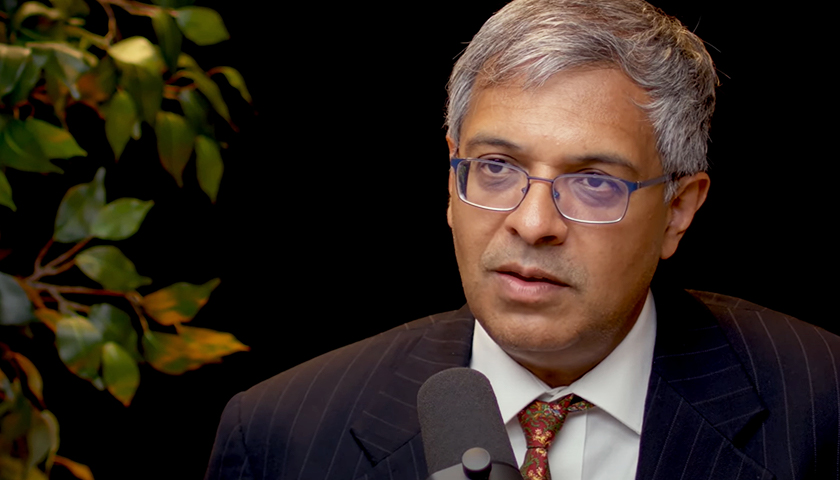by Casey Harper
The National Institutes of Health has issued more than a million dollars via taxpayer-funded medical research grants to find evidence that racism is to blame for poor sleep in minority communities.
The funding was appropriated to Dr. Alexander Tsai, an associate professor at Harvard University who is conducting the research through Massachusetts General Hospital, where he works as a psychiatrist.
The studies are based on the hypothesis that the disparity in sleep health in the black community is “thought to be explained partially by experiences of interpersonal racial discrimination.”
“This application focuses on police use of deadly force on unarmed black Americans as a cardinal manifestation of structural racism,” reads the grant summary in the NIH database. “The central hypothesis is that police use of deadly force on unarmed black Americans leads to unhealthy sleep among other black Americans in the general U.S. population. This hypothesis has been formulated on the basis of strong preliminary data showing that police use of deadly force on unarmed black Americans leads to poor mental health among other black Americans in the general U.S. population.”
NIH awarded $460,656 to Tsai in 2020, $439,970 in 2021, and $273,625 in 2022 for the research project, titled “Racial disparities in police use of deadly force as a cause of racial disparities in sleep health across the life course.”
That totals nearly $1.2 million over three years.
“The findings will have significant public health impact because they will provide proof of principle for development and targeting of structural and psychosocial interventions to reduce racial disparities in sleep health,” the grant summary reads.
Critics told The Center Square that the research is based on false assumptions and don’t account for other factors.
“It assumes that there is structural racism,” said Mike Gonzalez, an expert on critical race theory and diversity issues at the Heritage Foundation. “It assumes that the disparities are caused by structural racism and not a panoply of other reasons. There could be many, many hundreds of reasons why these disparities exist. That is the main problem with critical race theory … the disparities are real, but then it says well, the disparities are prima facie evidence that structural racism exists…. It’s not binary. There are decisions that people make. There are bad schools. There are problems with family formation.
“There are many, many things that could cause the disparities and by focusing on the ghost of structural racism, none of the other more practical reasons are explored and the problem never gets fixed,” he added.
The researcher points to social science literature where where “some people need to ‘steel themselves’ to prepare in advance for the possibility that they will be subjected to various racial insults day to day.”
When asked about whether lifestyle choices could be to blame for the sleep issues, Tsai said this study doesn’t address that but that it could be difficult to take that into account because those lifestyle choices could also be caused by racism.
“I think it would be a reasonable scientific undertaking to attempt to quantify and compare the magnitudes of the impacts of structural racism on sleep health vs. the impacts of certain health behaviors or health risk behaviors on sleep health,” Tsai said. “From an epidemiological perspective, one of the potential problems you might encounter is that both sleep health and these behaviors could have a common cause in structural racism (or, alternatively, these health behaviors or health risk behaviors could lie in the causal pathway between structural racism and sleep health). For example, if structural racism has a causal influence on alcohol consumption, and some threshold level of alcohol consumption is thought to have an adverse causal influence on sleep health, then it would be a difficult undertaking to make a direct comparison between the racism-sleep association vs. the alcohol-sleep association.”
The funding comes as part of a growing trend of federal funds allocated for medical research assuming structural racism and relying on other left-leaning ideology.
“That [money] could be used for cancer, that could be used for diabetes … sickle cell anemia,” Gonzalez said. “You hear more and more and more about DEI (Diversity, Equity, Inclusion) and CRT, ESG, really impacting the medical industry.”
Tsai defended the program, saying “the study seems neither unsubstantiated nor grounded in racial ideology.”
“And, given the public health significance, it falls well within the purview of the U.S. National Institutes of Health, so neither would it be a poor use of taxpayer dollars,” he added.
Gonzalez also argued that disparities are often oversimplified.
“Let’s talk about disparities,” Gonzalez said. “It depends on what you count as African American. For example on household income, if you isolate out African Americans with Nigerian ancestry and Ghanian ancestry, they outperform whites in many of the categories, there are no disparities. There are disparities, disparities in favor of Nigerian Americans and Ghanian Americans.”
– – –
Casey Harper is a Senior Reporter for the Washington, D.C. Bureau of The Center Square. He previously worked for The Daily Caller, The Hill, and Sinclair Broadcast Group. A graduate of Hillsdale College, Casey’s work has also appeared in Fox News, Fox Business, and USA Today.





